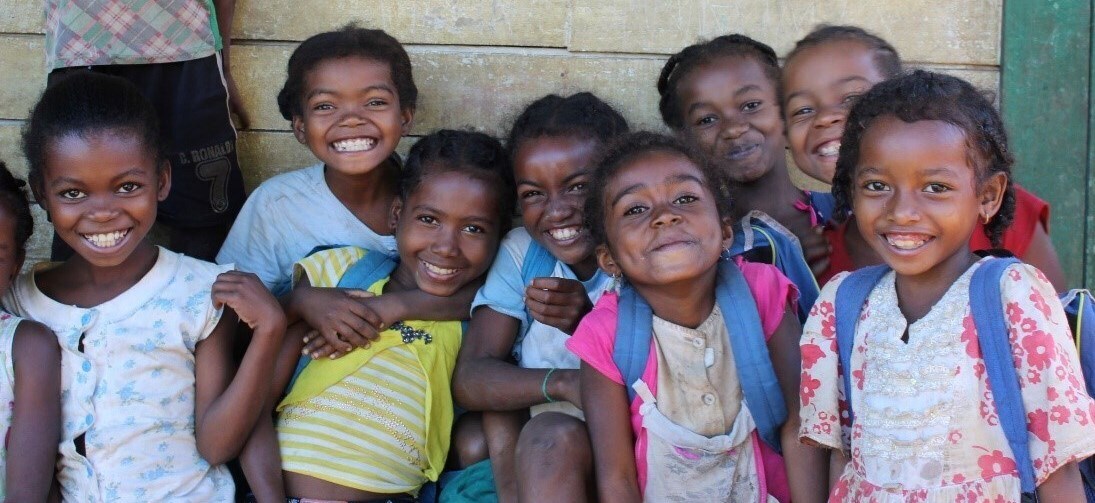
Funded
- About
Introduction
SEED Madagascar (SEED) is currently seeking the remaining funds for a 12-month project that aims to improve health and education in two schools in rural Madagascar. SEED will construct three classrooms, sanitation facilities, and rainwater harvesting systems, and repair existing infrastructure. This will be complemented by sustainable water, sanitation, and hygiene education, delivered by existing teachers through a train-the-trainer model.
In Vatambe Primary School, there is only one functional classroom, which prevents nearly all 232 students from attending full-day sessions; some classes are held in a dilapidated thatched building, where students must sit on the floor. Due to the increasing student population, the only two latrines, which SEED constructed in 2008, have become insufficient to address the school’s water, sanitation, and hygiene needs. These inadequate facilities impede female students, who can reach age 14, from safely managing menstruation.
In Mahatalaky Lower Secondary School, the eight classrooms constructed by SEED in 2011 continue to support the school’s 541 students, yet the only two latrines are inadequate for this growing population. This results in an extreme student-to-latrine ratio (271:1) that significantly exceeds national standards (50:1) and forces many students, who can reach age 18, to openly defecate, contributing to disease transmission. As in Vatambe, the lack of water sources and facilities impedes practices such as handwashing and menstrual hygiene management.
SEED Madagascar is aiming to address these schools’ needs by providing water, sanitation, and hygiene infrastructure and education infrastructure, which will be complemented by sustainable education. Over 12 months, SEED aims to achieve the objectives below.
Objectives
Objective One Enable 230 students to attend school full-time annually in Vatambe through construction of three fully-furnished classrooms and repair of another.
Objective Two Provide clean water for 773 students and 28 teachers annually through construction of two rainwater harvesting systems.
Objective Three Improve gender-equitable sanitation for 773 students and 28 teachers annually through repair and construction of 13 latrines and two menstrual hygiene management facilities.
Fully-furnished Classrooms SEED will repair one classroom and construct an additional three in Vatambe. Classrooms will be provided with furniture, including 105 benches, creating safe learning environments. The additional classroom places will enable 230 students to attend full-time education annually.
Latrines, Handwashing, and Menstrual Hygiene Management SEED will construct two handwashing stations equipped with behavioural ‘nudges’ and a menstrual hygiene management facility at each school. Vatambe will receive two gender-segregated latrines, and Mahatalaky will receive seven. With repairs of two existing latrines at each school, this construction will reduce the student-to-latrine ratio by 18% in Vatambe and 77% in Mahatalaky, substantially improving sanitation.
Rainwater Harvesting Systems One rainwater harvesting system will be installed at each school. Each system will be capable of providing two-month supplies of clean drinking water without replenishment.
Water, Sanitation, and Hygiene Education To complement the provision of infrastructure, SEED will train all 28 teachers to deliver water, sanitation, and hygiene education to students. This integrated approach will promote sustainable water, sanitation, and hygiene behaviours, improving public health and academic achievement.
Sustainability Following project completion, the schools will be responsible for managing all infrastructure, which has been designed to minimise maintenance costs. Committees will be established in each school and receive financial training, enabling them to make repairs, funded through the provision of surplus rainwater to the community.
A train-the-trainer approach to water, sanitation, and hygiene education enables knowledge to be retained by the schools and removes a reliance on SEED to provide education directly.


